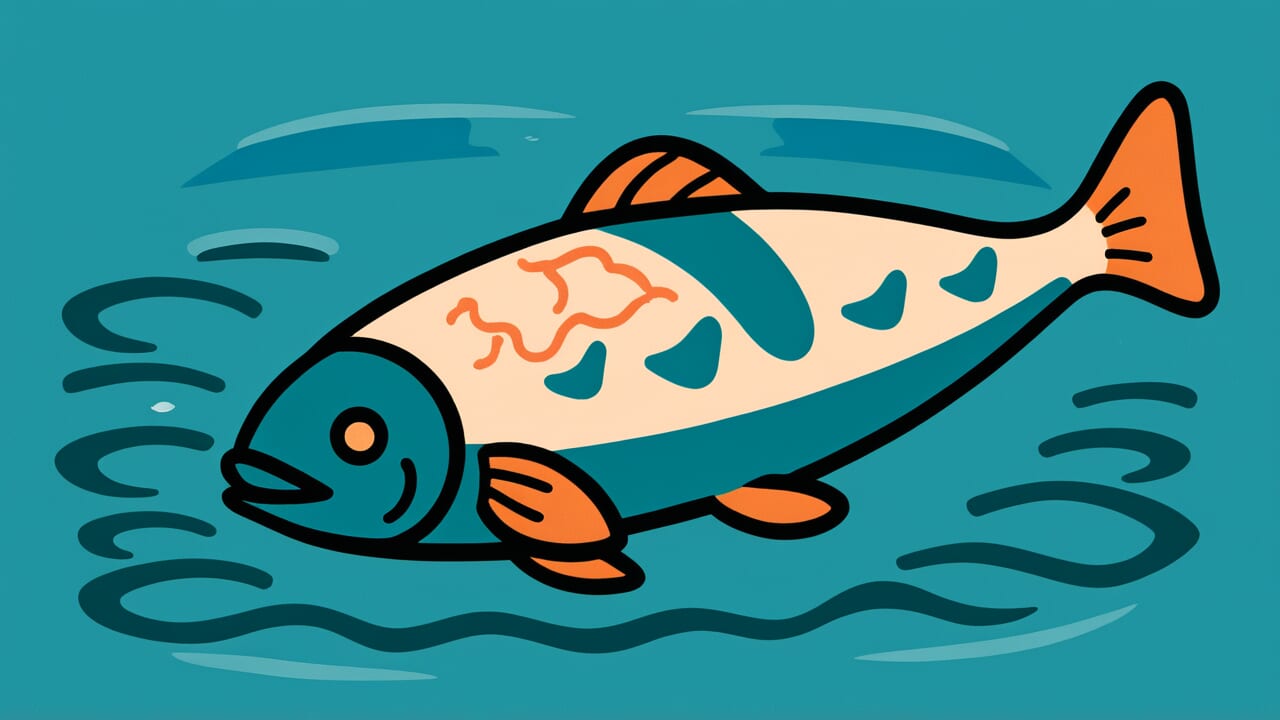How to Read “Even small fish have fins”
zako mo uo no hire
Meaning of “Even small fish have fins”
“Even small fish have fins” means that even tiny, insignificant fish are still fish. They have fins, which are the defining features of fish.
This proverb teaches us that even people who seem unimportant have their own worth and value. Everyone deserves respect, no matter how small their position might be.
People use this saying when talking about those in less visible social positions or those with less power. It reminds us not to look down on them.
The core idea is that no matter how small someone’s existence seems, their essential nature and dignity remain intact.
Today, we use this proverb in organizations when talking about newcomers or people in lower positions. It also applies to those whose influence seems small.
It reminds us that these people have their own unique value and roles. What looks unimportant at first glance still deserves equal respect in its essence.
This expression reflects the Japanese spirit of equality and human dignity. It shows a deep respect for all people, regardless of their status.
Origin and Etymology
No clear written records explain the exact origin of this proverb. However, we can make interesting observations from how the words are put together.
The word “zako” (small fish) has been used since ancient times to describe low-value small fish. In markets, large fish like sea bream and bonito sold for high prices.
Meanwhile, nameless small fish were lumped together as “zako” and sold cheaply.
The word “hire” (fins) proves that something is a fish. Even the smallest zako is a proper member of the fish family if it has fins.
This saying likely came from Japanese people’s careful observation of fish.
People in fishing villages and fish markets probably noticed something important. Even fish that seemed worthless still had all the features that make a fish a fish.
This observation then expanded into a view about human society. Even people who don’t stand out have their own unique value and roles.
During times when social class systems were strict, this proverb carried a warm regard for small existences. It showed compassion for those at the bottom of society.
Usage Examples
- Even new employees have rights to share their opinions as company members—even small fish have fins, after all
- I’m still inexperienced, but even small fish have fins, so I’ll contribute in my own way
Universal Wisdom
The proverb “Even small fish have fins” contains deep insight about the essence of existence in human society.
Why do people look down on others as “insignificant beings”? It happens because humans tend to measure people by superficial standards like visible power, status, and influence.
Yet this proverb has been passed down through generations for a reason. It continues to resonate as a warning against such superficial judgments.
Just as even the smallest fish has fins, even the most invisible person retains their unique essence and dignity. This is a timeless truth.
Humans have a tendency to look down on those weaker than themselves. At the same time, they know the pain of being looked down upon.
This proverb sees both sides of human nature. It quietly speaks a universal truth: “In essence, all people are equal.”
Our ancestors understood something important. Social hierarchies and power relationships exist, yes. But human worth on an essential level exists on a different dimension entirely.
This wisdom is what keeps this proverb alive today.
When AI Hears This
Looking at ocean ecosystems through numbers reveals a surprising reversal. Small fish like anchovies make up about 70 percent of total ocean biomass.
Meanwhile, apex predators like tuna and sharks account for less than 1 percent. In the ecosystem pyramid, the “small fish” at the bottom vastly outnumber everything else.
If they disappear, the entire upper structure collapses. When herring were overfished in the North Sea, cod and seal populations also declined dramatically in a chain reaction.
Energy efficiency calculations are even more interesting. Small fish eat phytoplankton and convert about 10 percent of that energy into their own bodies.
Large fish then eat small fish and can only use 10 percent of that energy. This means producing one kilogram of tuna requires 100 kilograms of small fish.
From this “10 percent rule,” small fish are the currency of the ecosystem. Nothing functions without them.
This proverb uses metaphor to say “even the weak become powerful in numbers.” But in marine ecology, this isn’t metaphor—it’s literal truth.
Small fish aren’t just numerous. They’re structurally essential elements supporting the entire system.
This ecological fact suggests something about human society too. People in invisible roles might actually be supporting the foundation of organizations.
Lessons for Today
This proverb teaches modern people to reconsider how we measure human worth. We tend to judge people by visible standards like titles, achievements, and influence.
But what truly matters is each person’s inherent dignity and potential, isn’t it?
When you see newcomers or young people at work, or people doing quiet work in your community, remember this proverb. When you yourself feel like a small existence, remember it too.
No matter how little experience you have, no matter how weak your position, you have an unshakable essence of “being you.”
Modern society increasingly emphasizes performance-based evaluation. Visible results get all the attention.
But organizations and societies only function when people of various positions come together. Recognizing each person’s existence and respecting everyone’s “fins” matters deeply.
Having this warm perspective is the first step toward building richer human relationships and a better society.



Comments